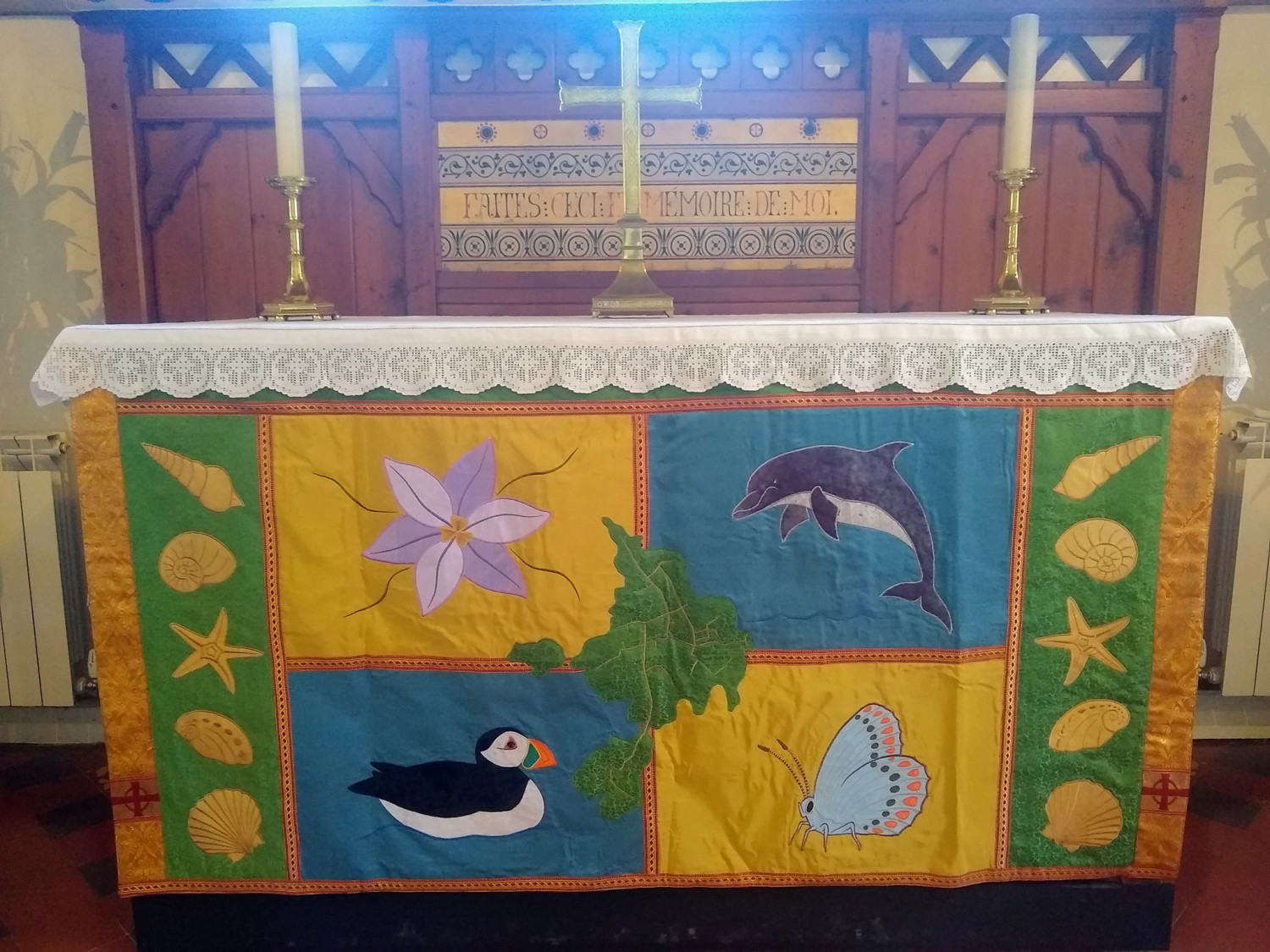Sermon 26th June 2022
|
The readings are 1 Kings 19, 15-16, 19-21 and Luke 9, 51-62 We also dedicated a new altar frontal, a picture is included here, details are in the Latest News section of the website It’s been good to dedicate our new altar hanging on the Sunday that we also celebrate St Peter, the patron saint of our church. Although Peter became the early leader of the growing church after Pentecost, it is clear that both Jesus influence upon him and the power of the Holy Spirit transformed a regular fisherman into a great evangelist.
I actually think it’s no mistake that in the gospels we often hear of Peter’s failings, his doubts, his tendency to open his mouth in inappropriate places, or at the wrong time. Some might say impetuous, and certainly, when called on the shores of Galilee, he did not hesitate to leave his nets and join Jesus.
In our Old Testament reading, there’s another man who acts immediately when called. Immediately Elijah asks Elisha to join him, we hear he left his oxen to follow, although he did go back and kiss his mother and father goodbye, yet in going to do so he made provision for his family and workers from his wealth.
In contrast, in our passage from Luke, there are those who, when called by Jesus, find excuses or reject him. The Samaritans because they don’t recognise Jerusalem (where Jesus was heading) as their spiritual capital, the others finding excuses to follow him later. Jesus even references out Kings reading when he alludes to Elisha leaving his plough immediately.
When we reflect on such bible passages and characters in relation to our own faith journeys, we might be encouraged for instance, by Peter’s early bumbling’s and failures, and yet his great leadership after Jesus had gone. We might reflect on Elijah, last of a line of prophets, from a poor background and, after all his colleagues had been killed off, hearing God not in the storm or earthquake, but in God’s still small voice. He then goes on to select leaders and institute massive regime change within the religious hierarchy of the day. We might reflect on the wealthy Elisha, who immediately leaves his plough, converts his wealth into food for all his relatives and workers, before leaving to work with Elisha to bring about the change needed.
When Jesus set his face toward Jerusalem, he did so, knowing what the final outcome there would be. He didn’t need half hearted stragglers who were joining for the reflected glory from a popular wandering prophet. He knew the road ahead would be tough, require commitment, require giving up everything for the sake of the good news. Amongst his true followers was Peter, who had not hesitated to leave his nets, and yes, was far from perfect and needed some fine tuning, but even in his imperfections, Jesus knew he would be the leader he needed.
Elijah too, having lost all his prophet friends, feeling rejected and persecuted by the religious authorities of the day, including those of other religions, after hearing God’s still small voice, he needed commitment from the leaders he selected, a willingness to give up everything for the cause, even to give up their wealth to those they would leave behind.
In our own faith journeys, in out inevitable travel toward a metaphorical Jerusalem, sometimes we need to listen for God’s still small voice over the clamour of our own thoughts and demands, and sometimes when that still small voice demands commitment and even complete change, there’s no point is saying “hang on a minute whilst I do this or that” or, in other words say to God “Can’t you wait until it’s convenient for me?”, because the Bible shows us that’s not how God works.
He asks for total commitment, a willingness to follow, a willingness to face the troubles that might be ahead, a willingness to give up those things we cling on to which may be holding us back, even a willingness, like Elijah, to set our face toward radical change and find those willing to commit and accompany us on that journey.
Are we ready to do that, recognising, like Peter that we might be far from perfect, that we might do or say things that aren’t always right, but ultimately become the people God intends us to be, the church God intends us to be?
We dedicated a new Sark altar hanging this morning which in its artistry brings much of Sark here before God. When we come to this altar, we come, every time to rededicate ourselves to the remembrance of Christ and his desire for the church to be his body here on earth. Let us pray that we will be committed to Christ, and not be one of those who says “Can’t you wait until it’s convenient for me?”, because Christ won’t wait, when the needs of the world are upon us, and the kingdom of God is waiting. Amen.
|

